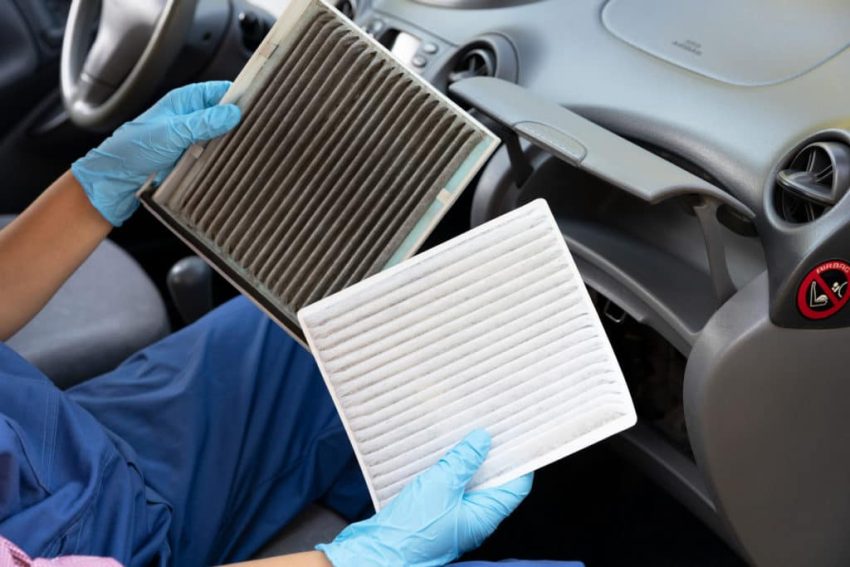You’re ready for a change if the air inside your car has been stale and unpleasant or if you have problems keeping your windshield clear in humid weather. It is the responsibility of the cabin air filter to maintain a complete flow of clean, fresh air since it is more than just a luxury and is necessary for safe and healthy driving.

The cabin air filter is designed to become dirty over time and while it performs its function, much like other consumable parts. Replacing it typically costs between $20 and $25. Replacing also simply takes a little while. Find out what cabin air filters are, why you should replace them, and when to do so.
Understanding air filters for cabins.
A nice and healthful driving experience is frequently guaranteed by cabin air filters. Their job is to clean the air that the HVAC system (heating, ventilation, and air conditioning) brings into the cabin. Their main job is to filter out dust, pollen, mold spores, and other airborne particles so that the air inside your car is fresh and clean. Assuming your windows are closed, and it functions properly, all of the air that enters your cabin while you are driving is filtered.
Considering the quantity of allergens and pollutants in the air, the value of cabin air filters becomes clear. These particles may enter your automobile without the right filtering system, compromising the air quality and posing a risk to your health as well as comfort.
A CLEAN CABIN AIR FILTER’S BENEFITS
Now that we are aware of the function of cabin air filters, let’s examine the advantages of maintaining and cleaning them.
Increase air quality. The purity of the air inside the car is one of the main advantages of a clean cabin air filter. The filter keeps dust from building up within and guarantees that you and your passengers breathe in clean, fresh air by capturing and blocking the introduction of contaminants.
Maximized efficiency of the HVAC system. The HVAC system can circulate air more effectively when the filter is clean. Thus, the system’s efficiency is preserved and it continues to operate at its best. This implies that you may use the full force of your blower motor to maintain clear windows.
Better conditions for driving. A clean cabin air filter may make all the difference for allergy sufferers. It successfully lowers allergens like mold spores and pollen, making the driving environment healthier.
Keeps the parts of your HVAC system operating. A cabin air filter prolongs the life of parts such as the heater core, evaporator core, and blower motor resistor by keeping dirt and debris out of the HVAC system. Long-term savings on prospective repairs and replacements can be achieved by doing this.
TIMING OF CABIN AIR FILTER REPLACEMENT
Maintaining the efficacy of your cabin air filter requires knowing when to change it. The following indications suggest that it’s time for a replacement:
Decreased air movement. A blocked air filter may be the cause of any decrease in airflow from your vents. This may result in the cabin not cooling or heating as well as trouble washing the glass of any moisture.
Unpleasant smells. A stale or disagreeable smell inside the car, particularly while the air conditioning is on, might be a sign of a dirty cabin air filter.
Symptoms of allergies. When you or your passengers suffer from allergy symptoms while in the car, it might indicate that the cabin air filter is no longer able to remove allergens from the air.
The sound of your vents. Filter collapse and interference with other components, such as the blower motor wheel, can occur when the filter becomes clogged with dirt and debris.
It’s usually advised to consult your car’s owner’s handbook for precise recommendations on how often to change the cabin air filter. Nonetheless, it’s generally recommended to change the filter at least once a year, or every 12,000 to 15,000 miles.
